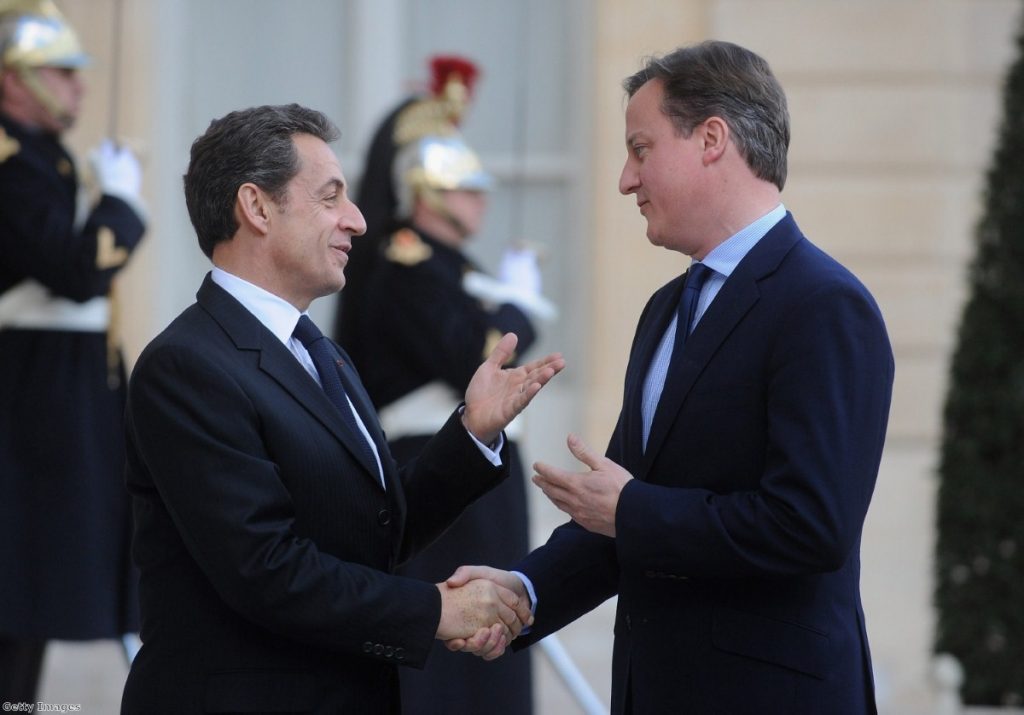Burying the hatchet: Cameron and Sarkozy kiss and make up
By Ian Dunt Follow @IanDunt
David Cameron and Nicolas Sarkozy tried to put their previous disagreements behind them today, as they assured the world's press that they remained "friends".
The two leaders' relationship hit a low at the end of last year when the French president branded the British prime minister an "obstinate kid" and seemingly avoided shaking his hand.
"It has never been a personal opposition between the two of us," president Sarkozy said.


"David Cameron is a brave man, and there are worse fates than working with a brave man."
He continued: "There are divergent views between us – traditional ones. You know, French and British views on Europe. We are organising things in such a way as to meet agreement."
Mr Cameron said: "We do sometime have our disagreements on some European issues. They're not disagreement between individuals – it's about British approaches and French approaches.
"It’s a relationship that can survive the odd bump when we sometimes have a disagreement. That’s what politicians do and that’s what friends do too."
Mr Cameron's veto of the fiscal consolidation plans in Brussels last December saw frantic diplomatic manoeuvres by French and British negotiating teams.
In the early morning of the veto, the French president scrambled to hold his press conference before Mr Cameron and strongly suggested that the UK acted as a roadblock to efforts to solve the eurozone crisis.
There were still some unresolved tensions on display during the joint press conference in Paris today.
When Mr Cameron told reporters he had visited the French capital more than any other city since becoming prime minister, president Sarkozy smiled and interrupted by saying: "Except Brussels."
Mr Cameron replied: "That's not quite the same thing".
Asked what he liked about Britain, president Sarkozy noted the Brits are "staunch defenders of the City".
The observations could have been construed as sarcasm given London mayor Boris Johnson recently encouraged young French people to work in London if the French president succeeded in implementing a financial transaction tax in his own country.
President Sarkozy's uphill battle to win re-election this summer was the subject of several comments from Mr Cameron.
"We'll be following your fortunes on the campaign trail in weeks to come," Mr Cameron said, before noting that his own help on the campaign trail would be unlikely to help the president's electoral fortunes.
Whatever the misgivings between the two men, Downing Street will be hoping for president Sarkozy to defeat the radically leftist programme put forward by his Socialist party opponents, who currently hold an impressive lead.
The Paris trip, which saw Mr Cameron bring deputy prime minister Nick Clegg and energy secretary Ed Davey, resulted in a joint nuclear power deal worth 1,500 jobs and £500 million.
French and British teams also discussed joint defence efforts, including plans for an unmanned aircraft programme.
The plans come 11 months after Japan's Fukushima Daiichi nuclear plant was wrecked following the earthquake and tsunami, leaving Germany to question its use of nuclear power.
Britain also conducted a review but concluded there were no reasons to halt the use of nuclear energy.












